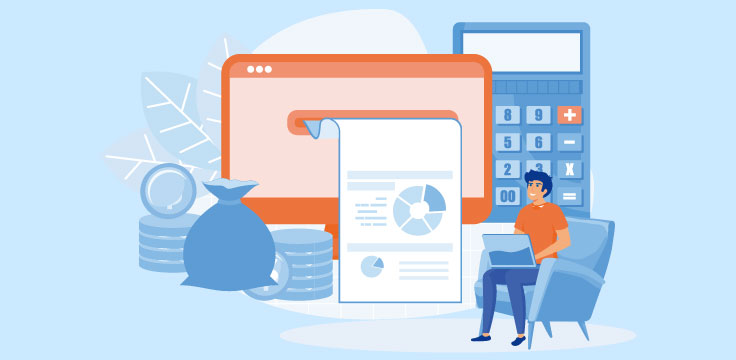When money is already tight from paycheck to paycheck, trying to cover a surprise cost of several hundred or even over a thousand pounds can feel downright impossible. You rack your brain going over your budget line by line, but those wiggle room pounds just aren't there.
So what do you do when an irregular, unavoidable expense gets thrown on your plate with the cash you need to pay it? You could dip into your emergency savings fund if you've been diligent about building one up. If not, you can charge it to a credit card as a temporary Band-Aid. Or, you could see if the lender, provider, or company you owe is willing to work out a deferred payment plan to spread out the costs.
If none of those options are viable, consider a term loan.
Before considering a short-term loan, it's important to assess all financial options as loans can lead to debt and require careful management.
What Are Short-Term Loans?
Short-term loans are designed to get you cash quickly that you then pay back over a condensed period, usually between 3-12 months, depending on the lender and loan amount. They come in a few different flavors:
- ● Payday Loans - These are very short-term loans, typically a week or two, where you borrow against your next paycheck and pay it back when you get paid.
- ● Personal Installment Loans - AAnal loans with higher interest but a shorter repayment window than conventional bank loans.
- ● Credit Card Cash Advances - Using your credit card to take out a cash loan, usually with a fee.
- ● Auto Title/Pawnshop Loans - Shorter-term loans where you leverage your car title or physical property/assets as collateral.
Most banks, credit unions, and many online lenders offer dedicated short term loan programs with various loan amounts, interest rates, fees, and repayment schedules to choose from, depending on your needs.
The Benefits of Short-Term Loans
At first glance, any loan that allows your debt to grow temporarily may not seem like an ideal solution. And that's certainly an understandable perspective; no arguments here. Debt is debt, and we should avoid that burden entirely.
However, short-term loans do carry some compelling benefits compared to other last-resort financing options:
Lightning Fast Cash
The biggest draw of short-term lending is how fast you can get your hands on the funds once approved - sometimes even the same day or within 24-48 hours. That immediacy is enormous when a high-priority expense needs covering.
Potentially Lower Interest Costs
While higher than rates from your bank, the interest rates you'd pay on short-term loans tend to be considerably lower than running up a big balance on credit cards or other revolving debt. For some context, personal loan interest rates could be in the 10-30% APR range versus 15-25%+ for credit cards.
Fixed Payment Schedules
Unlike credit cards, which fluctuate and have unstable payment amounts, short-term loans provide predictability with fixed interest and equal payments across the repayment schedule. This can make it much easier to fit into your budget.
No Collateral Needed
With personal or payday loans provided by your bank, credit union, or reputable online lenders, you won't need to put down any collateral like your house or car that could get seized if you default on the loan.
Remember, the rate you are offered may vary due to personal circumstances and loan amount. Failing to make timely payments can cause you serious money problems. For help, visit moneyhelper.org.uk.
When a Short-Term Loan Makes Sense
I'll be the first to say debt should never be treated as the go-to default solution for occasional budgetary hiccups or getting sloppy with your money management skills. The goal is to avoid extra debt burdens whenever possible.
However, when facing a genuine cash flow emergency or predicament beyond your temporary control, taking out a short-term loan is prudent to make the best out of a challenging situation. For example:
Avoiding Missed Payments or Shut-off Notices
If you have bills or loan payments looming that are in jeopardy of going past due, a short-term loan could provide the funds to avoid pricey late fees, penalties, negative credit dings, or, worst-case, getting utilities or services shut off entirely.
Covering Emergency Repair Costs
For unplanned emergencies like your car unexpectedly breaking down and needing pricey repairs to get back on the road, a short-term loan can provide fast cash to cover those unavoidable costs so the mechanic can start working.
No Overdraft Fees at the Bank
Rather than face overdraft or bounced payment fees from your bank to cover essential bills, taking out a short-term loan eliminates that unnecessary expense until you get paid again.
It's crucial to use short-term loans only in genuine emergencies and ensure you have a solid repayment plan in place. Consider other financial avenues and consult with a financial advisor to make an informed decision.
In Conclusion
While responsible personal finance principles emphasize avoiding debt altogether when possible, the truth is that circumstances beyond our control sometimes force less-than-ideal temporary solutions. And using short-term loans to manage that occasional bump in the road is entirely okay!
The key is approaching them thoughtfully and intentionally as a specific form of supplemental emergency cash flow. Keep them from becoming a long-term crutch for poor budgeting habits. Recognize their purpose, get in and out of that loan agreement cleanly, and move forward wiser from the experience.
This content is for informational purposes only and is not intended as financial advice. Please consult a professional for advice tailored to your situation. If you're unsure about the best financial option for your situation, consider contacting a professional financial advisor.
"Warning: Late repayment can cause you serious money problems. Always consider if borrowing is the right option for you and ensure you can repay your loan." For help, go to moneyhelper.org.uk.

